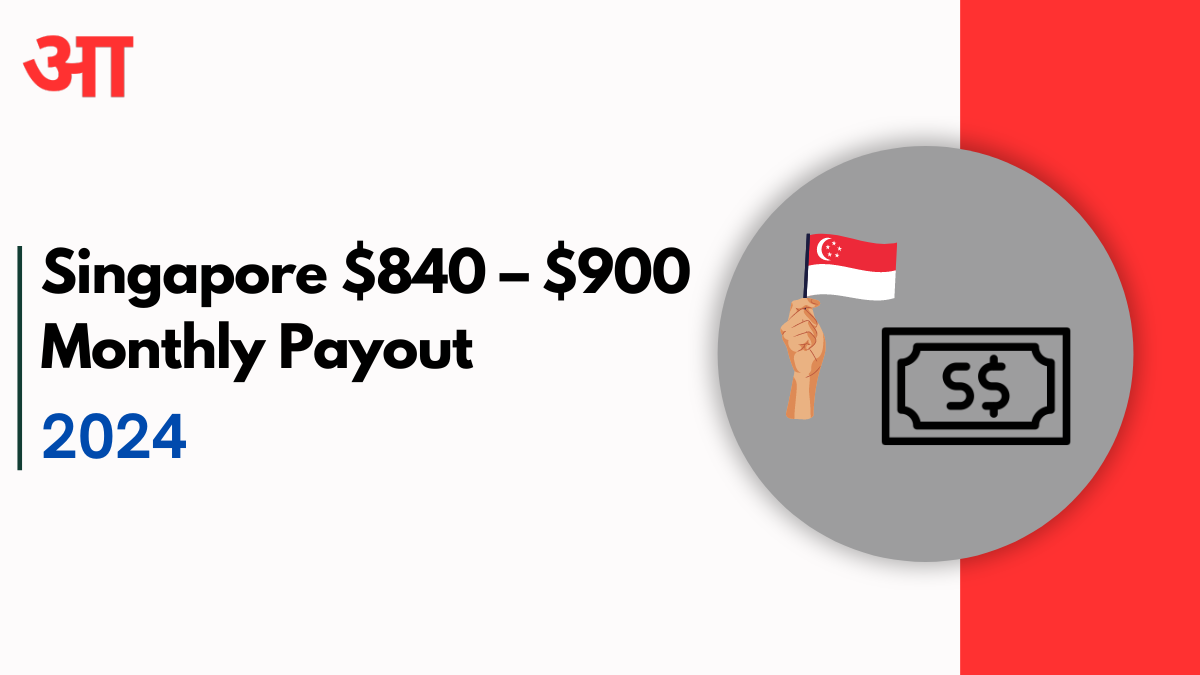Singapore has a system called the Central Provident Fund (CPF). It’s like a big savings account for when you get old. It helps you pay for things like medical bills and a place to live. One part of this system is the Basic Retirement Sum (BRS), which gives you a regular amount of money every month when you retire.
Contents
Singapore $840 – $900 Monthly Payout
When you turn 65 and if you have saved enough in your CPF account, you will get a monthly payment between $840 and $900 to help with your expenses. The BRS is one of three parts of the CPF Retirement Sum Scheme. The other two are the Full Retirement Sum (FRS) and the Enhanced Retirement Sum (ERS). The BRS is meant to help people who don’t have anyone else depending on them for money.
In 2024, the amount you need to have in your CPF account to get the BRS is $99,400. If you have this much in your account when you turn 55, it will be set aside for the BRS when you turn 65.
Check This
Who can get the Monthly Payment?
To get the monthly payment of $840 – $900, you need to:
- Be 65 years old or older.
- Have at least $99,400 in your CPF account when you turn 55.
- Be a citizen or permanent resident of Singapore.
- Choose to start getting payments when you turn 65. You can also choose to start getting payments anytime between 65 and 70. If you wait longer to start getting payments, you will get more money each month.
What do I need to do to get the Monthly Payment?
- Save enough money: You must have the BRS amount in your CPF account. You can save money in your CPF account and other retirement savings.
- Add more money to your account: If you don’t have enough in your CPF account when you turn 55, you can add more money or transfer money from another account to meet the BRS.
- Choose when to start getting payments: The amount you get each month depends on when you start getting payments. If you start at 65, you will get between $840 and $900 each month. If you wait longer, you will get more.
- Plan for the long term: The payments are meant to last for your whole life, so you will have a steady income when you retire.
When and How do I get the Payments?
You usually get your CPF payment on the first working day of each month. Here’s what you need to know:
- Payments come every month to give you a regular income.
- Payments go straight into your bank account. Ensure your bank details are up-to-date with the CPF Board so you don’t have any problems.
- If the first day of the month is a holiday or weekend, you will get your payment on the last working day before that.
- You get a yearly statement showing how much you got and how much is left in your account. This can help you plan your finances.
Things to Think About When You Retire
- Plan your spending: Make sure you can live on the amount you get each month. You might need to plan for things like housing, medical bills, and everyday expenses.
- Find other ways to make money: If you need more money, you could think about working part-time, investing, or finding other ways to make money.
- Plan for medical costs: Singapore has a good healthcare system, but you might still have medical bills. Medisave and other healthcare schemes can help pay for these.
- Think about where you live: If you own a house, you could think about moving to a smaller place or renting out part of your house to make more money. There are programs like the Silver Housing Bonus and Lease Buyback Scheme that might help.
Wrapping Up
The monthly payment of $840 – $900 from the CPF scheme gives retirees a steady income. It is important to understand how to qualify for this payment, how it works, and when you get it. This can help you plan your finances and ensure a comfortable retirement. With careful planning and good management of your CPF money, you can look forward to a secure and happy retirement.
Click the link to know more.

Mahesh Sen, a seasoned student advisor, writes informative articles on educational topics. Mahesh gives valuable insights and practical advice to guide students through their academic challenges and milestones.
